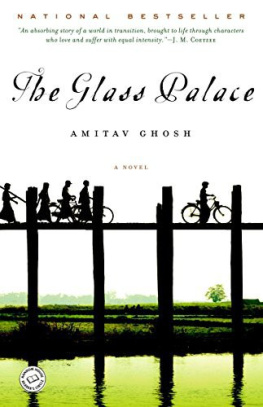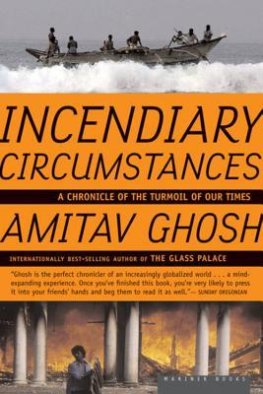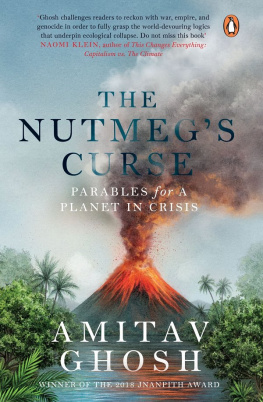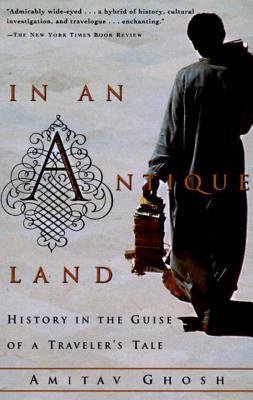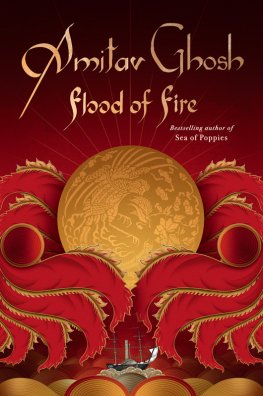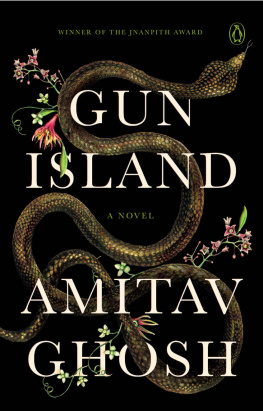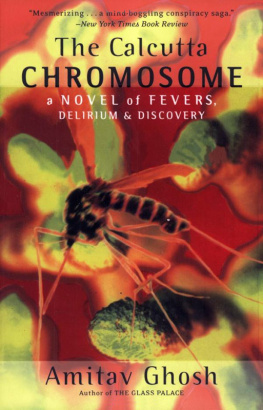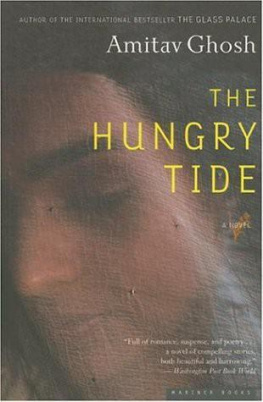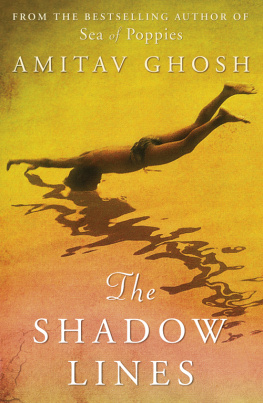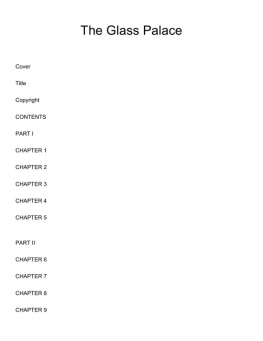CONTENTS
Also by Amitav Ghosh
The Hungry Tide
Incendiary Circumstances
The Glass Palace
The Calcutta Chromosome
In an Antique Land
The Shadow Lines
Sea of Poppies
River of Smoke
The Circle of Reason
Amitav Ghosh

www.johnmurray.co.uk
First published in Great Britain in 1986 by Hamish Hamilton Ltd
First published in 2011 by John Murray (Publishers)
An Hachette UK Company
Amitav Ghosh 1986
The right of Amitav Ghosh to be identified as the Author of the Work has been asserted by him in accordance with the Copyright Designs and Patents Act 1988.
All rights reserved. Apart from any use permitted under UK copyright law no part of this publication may be reproduced, stored in a retrieval system, or transmitted, in any form or by any means without the prior written permission of the publisher.
All characters in this publication are fictitious and any resemblance to real persons, living or dead, is purely coincidental.
A CIP catalogue record for this title is available from the British Library
Epub ISBN 978-1-84854-422-2
Book ISBN 978-1-84854-416-1
John Murray (Publishers)
338 Euston Road
London NW1 3BH
www.johnmurray.co.uk
For my parents
Acknowledgements
F or their help and encouragement, I would like to thank, among many, many others, Mukul Kesavan, Hari Sen, Radhika Chopra, Supriya Guha, K. Jayaram, Felix Padel, Veena Das and my sister Chaitali (who helped more than she knew).
Part I
Satwae: Reason
Chapter One
Heads
T he boy had no sooner arrived, people said afterwards, than Balaram had run into the house to look for the Claws.
There were plenty of people gathered outside the big house to vouch for it boys in buttonless shorts, toothless, shrouded widows, a few men who had not found work for the day, squatting and scratching. Toru-debi threatened and scolded, but not one of them budged. It was not every day that someone new arrived in Lalpukur. Especially in such unusual circumstances (everyone knew them, of course).
Years later thirteen to be exact when people talked about all that had happened, sitting under the great banyan tree in the centre of the village (where Bhudeb Roys life-size portrait had once fallen with such a crash), it was generally reckoned that the boys arrival was the real beginning. Some said they knew the moment they set eyes on that head. That was a little difficult to believe. But, still, it was an extraordinary head huge, several times too large for an eight-year-old, and curiously uneven, bulging all over with knots and bumps.
Someone said: Its like a rock covered with fungus. But Bolai-da, who had left his cycle-repair shop and chased the rickshaw which was bringing Toru-debi and the boy home from the station, all the way to the house on his bamboo-thin bandy legs, wouldnt have that. He said at once: No, its not like a rock at all. Its an alu, a potato, a huge, freshly dug, lumpy potato.
So Alu he was named and Alu he was to remain, even though he had another name, finely scriptural Nachiketa. Nachiketa Bose. But Alu was all that he was ever known as, and nobody could deny its appropriateness.
It was remarkably apt, as Bolai-da said a little too apt, if anything that Balaram, who had for so many years spent all his spare time measuring and examining peoples heads, should have a nephew who had the most unusual head anybody had ever seen. No wonder he had run inside as soon as he set eyes on the boy (though he could have waited a bit since the boy was, after all, coming to live with him).
People were sorry for the boy, of course. It was barely a week since he had lost his mother and his father (Balarams brother) in a car accident. It was hard after a shock like that to go away to live with an unknown aunt and uncle.
It was common knowledge that the boy had not met Balaram, his own uncle, ever before. Balaram and his brother had never so much as exchanged a letter since the day, fourteen years before Alu arrived in Lalpukur, when Balaram took his share of their inheritance and moved to the village without so much, as his brother shouted after him, as a thought for the floundering family business. Later, with that vicious prescience peculiar to close relatives, he had even left instructions in his will that Balaram was not to be told of his death, nor asked to attend the funeral. But, as people told their children, nodding wisely, death chooses its own ironies: in the end it was to Balaram that his orphaned and more or less destitute son had to go.
And after all that to be faced with an unknown uncle bearing down on you with what looked like gigantic eagles talons!
Actually, it was only Balarams Claws. The villagers through long familiarity knew it to be harmless; but, still, they also knew it was little less than terrifying when seen for the first time. It was a kind of instrument, with three arms of finely planed and polished wood, each tapering to a sharp point at one end and joined to the others by a calibrated hinge. Balaram had designed it himself, soon after he discovered Phrenology. It had been made for him in Calcutta, at considerable expense. But, for all that, it was a simple instrument; merely a set of calipers, for measuring skulls. Only, at first sight, it looked as though it had been specially designed for gouging out eyes.
As Balaram advanced with the Claws held out in front of him, the boy shrank back, his knees shaking beneath his starched black shorts. Luckily for him, at that very moment Toru-debi turned towards the house after paying off the rickshaw. One look at the Claws and she knew exactly what was happening. She bounded up the four steps to the door with a cry, and snatched the instrument out of her husbands hands. He dropped his head, crestfallen, and ran his fingers through his thick white hair. Again? she cried, herding him into the house. Youve started again? And on your own nephew, even before hes stepped into the house?
She came back to fetch the boy only after she had shut Balaram safely into his study. The boy was standing on the steps in front of the door, staring silently with his large wondering eyes, at the people gathered outside and the swaying coconut palms and fields of green rice beyond. She took him by the hand and led him into the house, and with one last angry gesture at the people outside she barred the door behind her.
But once he was inside the house she panicked. Tugging him across the courtyard towards the smoky, soot-blackened kitchen on the other side, she shouted: Nonder-ma, Nonder-ma.
Nonder-ma hobbled out of the kitchen mumbling toothlessly, bent almost double, no more than a few withered bones, with her widows white homespun wrapped so carelessly around her that her dugs flapped outside, hanging down to her shrunken waist. Give him milk, give him milk, Toru-debi cried. She remembered that children are said to like milk. Muttering and complaining, Nonder-ma handed him a brass tumbler; and then, thrusting her face forward till he could see the grey flecks in her eyes, she examined him minutely. Liverish, she muttered. Look at his eyelids. Probably constipated, too.
The boy put the tumbler down and looked away. Be quiet, Nonder-ma, Toru-debi said, and handed it back to him, clucking her tongue in encouragement. But he would not touch it again.
What did he want? What do boys of eight do? What do they want? Childless herself, Toru-debi knew nothing of children. Children inhabited another world. A world without sewing machines. They neither hemmed, nor chain-stitched, nor cross-stitched, nor quilted. What



